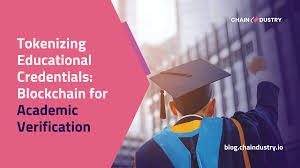IT IS YOUR MONEY
Tokenizing Education Credentials and Academic Verification
Education credentials play a vital role in employment, immigration, and professional advancement, yet traditional verification systems are slow, centralized, and prone to fraud. Digital assets and real world assets (RWA) are addressing these issues by enabling self-sovereign credentials, instant verification, and immutable academic records that empower students and institutions.

Tokenizing Degrees, Diplomas, and Professional Certifications
Universities and certification bodies can issue blockchain-backed digital credentials that students can store, share, and verify instantly. These tokens represent verifiable proof of education and skills without relying on third-party verification agencies.
Real-Time Verification Across Employers and Immigration Authorities
Employers, licensing boards, and government agencies can instantly validate credentials using blockchain-based identifiers. This eliminates manual checks, reduces fraud, and accelerates hiring and visa approval processes.
Real-World Use Case: MIT and Blockchain-Based Diploma Issuance
MIT has pioneered blockchain-based diploma issuance through its Media Lab, allowing graduates to receive digital certificates that are secure, portable, and easily verifiable. Digital assets and RWA expand this model to global institutions and lifelong learning programs.
Decentralized Learning Portfolios and Skill Attestations
Students can build decentralized portfolios showcasing courses, projects, and achievements verified through blockchain. This approach supports micro-credentialing, lifelong learning, and personalized career development.
To learn how digital assets and RWA are transforming academic verification and credential management, connect with experts at DigitalAssets.Foundation for expert analysis and a FREE consultation.

More News
© 2026
